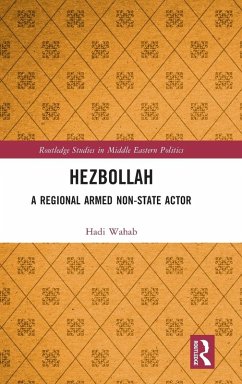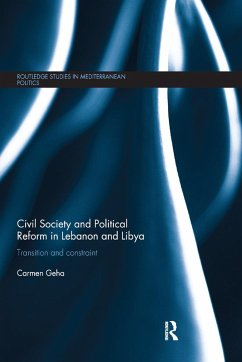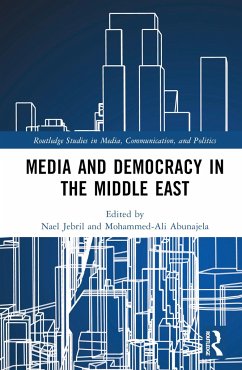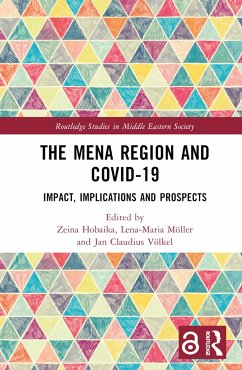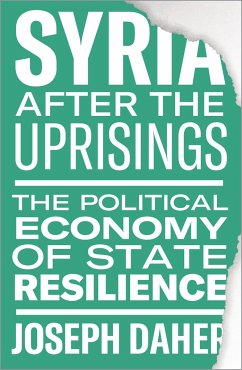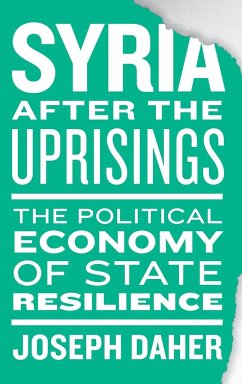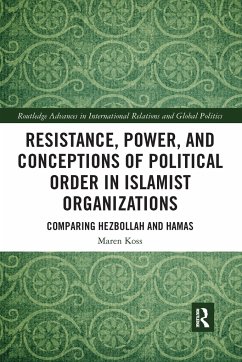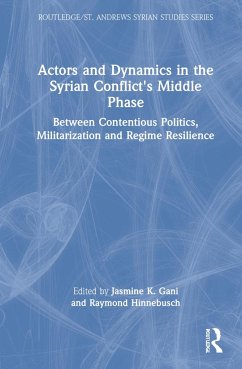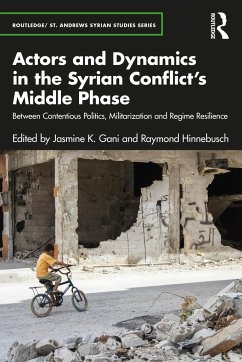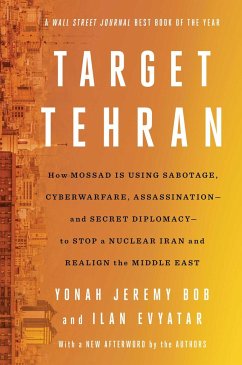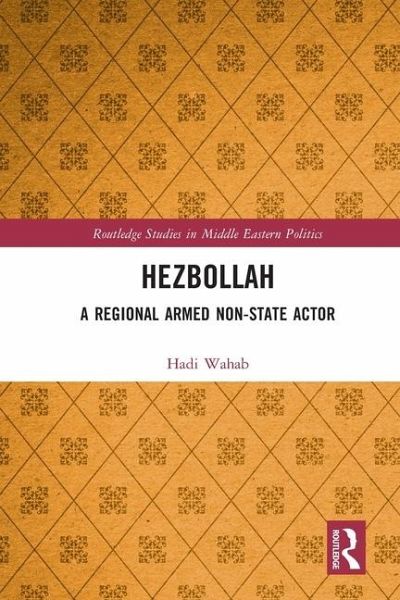
Hezbollah
A Regional Armed Non-State Actor
Versandkostenfrei!
Versandfertig in 6-10 Tagen
45,99 €
inkl. MwSt.
Weitere Ausgaben:

PAYBACK Punkte
23 °P sammeln!
This book examines Hezbollah's transition from a domestic into a regional armed non-state actor (ANSA). Taking its point of departure in Hezbollah's historiography on the military and political levels in Lebanon, it focuses on the participation of Hezbollah's troops in Syria's sect-coded civil war.Initially limited, Hezbollah's intervention in the Syrian conflict gradually increased into a full-scale engagement across vast swathes of Syrian territory, with Hezbollah instrumentalizing its sectarian (Shia) identity to justify its engagement. Sect-centric narratives and victimhood were a mere too...
This book examines Hezbollah's transition from a domestic into a regional armed non-state actor (ANSA). Taking its point of departure in Hezbollah's historiography on the military and political levels in Lebanon, it focuses on the participation of Hezbollah's troops in Syria's sect-coded civil war.
Initially limited, Hezbollah's intervention in the Syrian conflict gradually increased into a full-scale engagement across vast swathes of Syrian territory, with Hezbollah instrumentalizing its sectarian (Shia) identity to justify its engagement. Sect-centric narratives and victimhood were a mere tool for what was a geopolitical confrontation, and Hezbollah's involvement launched it to becoming a regional ANSA. The book outlines that this transition was only plausible because of the interplay between three factors: Hezbollah's sectarian mobilization and instrumentalization of its sectarian identity; the shift into a quasi-army combining classical with guerrilla tactics and formations; and its embedding as a partner in the axis which now extends from Beirut to Tehran. It was in 2018 that a set of conditions, impossible to reproduce, allowed Hezbollah to reach its culmination on both the domestic and regional theatres. This book shows that ANSAs are playing prominent roles in the regional order in the Middle East.
Meticulously researched, Hezbollah is a comprehensive study ideal for upper-level undergraduates and above with an interest in Middle East studies, Middle East politics, and international relations.
Initially limited, Hezbollah's intervention in the Syrian conflict gradually increased into a full-scale engagement across vast swathes of Syrian territory, with Hezbollah instrumentalizing its sectarian (Shia) identity to justify its engagement. Sect-centric narratives and victimhood were a mere tool for what was a geopolitical confrontation, and Hezbollah's involvement launched it to becoming a regional ANSA. The book outlines that this transition was only plausible because of the interplay between three factors: Hezbollah's sectarian mobilization and instrumentalization of its sectarian identity; the shift into a quasi-army combining classical with guerrilla tactics and formations; and its embedding as a partner in the axis which now extends from Beirut to Tehran. It was in 2018 that a set of conditions, impossible to reproduce, allowed Hezbollah to reach its culmination on both the domestic and regional theatres. This book shows that ANSAs are playing prominent roles in the regional order in the Middle East.
Meticulously researched, Hezbollah is a comprehensive study ideal for upper-level undergraduates and above with an interest in Middle East studies, Middle East politics, and international relations.





